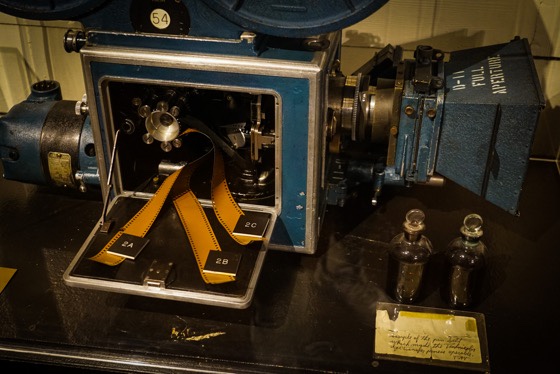I recently presented a talk on Torchwood (Why Torchwood Still Matters) where I highlighted a few ways in which the show (airing from 2006 to 2011) came up with progressive and innovative ideas that are being used by other franchises today.
I always enjoy attending the SD (San Diego) WhoCon because the audiences are so well-informed on the Whoniverse and Whovians love Captain Jack and the crew that made this spinoff program so engaging.

Transcript:
The person of color they ended up with and did keep of course was Toshiko and here they did good and they made a small mistake or they fell into a stereotype. Certainly, they made her a regular. She has a sex life. She falls in love with an alien. So we’re going to go into omnisexual stuff too. So we’re continuing the idea of the show but she also falls in love with Owen. So you know she also falls in love with a human but usually your person of color – largely when that person is of Asian descent – never has a sex life. Never has a home family. It’s like they don’t exist except to be in the workplace. So I would say that the stereotype they fell into was of course she is our computer expert. Happens a lot. We just ran into a yet another new series in the UK called Annika and it’s the story of a female cop and one of her assistants – one of the other cops – is the actress who played Cho Chang in the Harry Potter series. Now she’s about 30 and she does computer stuff but she also works in the field. So we’ve seen her interrogate people. So they’ve moved beyond that stereotype. They started there and now we’ve seen them move beyond that. So I would say that’s maybe the one flaw with this character but they certainly gave her a three-dimensional life and that’s really all anybody’s asking for. If you’re going to include a character they shouldn’t just be there as window dressing. They should have a complete life right and that’s been an argument for a long time with people of color on different tv shows. They don’t go home to somebody. They’re just there hanging out with the white people helping them out and it’s kind of like no they have other people in their life. So Tosh had a sex life. She had love. She had desires and she went through on most of those. So I think she’s a pretty focused…
Audience: She got more action than Jack.
Rosanne: She did. She totally did which is you know that’s I think innovative.
Audience: That’s saying something.
Rosanne: Exactly.
Audience: Jack talks a good game.
Rosanne: Exactly
Watch this entire presentation
Podcast: Play in new window | Download
Subscribe: RSS
![13 Toshiko (Tosh) Sato from Why Torchwood Still Matters with Dr. Rosanne Welch, San Diego Who Con 2021 [Video]](https://rosannewelch.com/wp-content/uploads/2022/07/rmw-whocon-2021-torchwood-13-copy.jpg)
![Vintage Film Projector, Hollywood Heritage Museum (Lasky-DeMille Barn) via Instagram [Photography]](https://rosannewelch.com/wp-content/uploads/2022/07/hollywood-heritage-projector-1-1200x1500.jpg)
![Vintage Film Projector, , Hollywood Heritage Museum (Lasky-DeMille Barn) via Instagram [Photography]](https://rosannewelch.com/wp-content/uploads/2022/07/hollywood-heritage-projector.jpg)

![03 Unreliable Narrators from What Is a Western? Interview Series: When Women Wrote Westerns from the Autry Museum of the American West [Video]](https://rosannewelch.com/wp-content/uploads/2022/07/rmw-western-03.jpg)
![What Is a Western? Gidget (1959) – Part Of The Series What Is A Western? Film Series – Autry Museum of the American West [Event]](https://rosannewelch.com/wp-content/uploads/2022/07/gidget_banner.jpg)
![What Is a Western? Gidget (1959) – Part Of The Series What Is A Western? Film Series – Autry Museum of the American West [Event]](https://rosannewelch.com/wp-content/uploads/2022/07/gidget_lobby_card_columbia_pictures.jpeg)
![Original documents acquiring the barn for DeMille/Famous Players Lasky, Hollywood Heritage Museum (Lasky-DeMille Barn) via Instagram [Photography]](https://rosannewelch.com/wp-content/uploads/2022/07/lasky-barn-paperwork.jpg)
![18 ”Angels With Dirty Faces“ from In Conversation with Dr. Rosanne Welch [Video]](https://rosannewelch.com/wp-content/uploads/2022/07/rmw-intellect-18.jpg)

![12 Photography can be an Unreliable Narrator from When Men Forget Women: The Many Ways Male Screenwriters Fail to Mention their Female Colleagues [Video]](https://rosannewelch.com/wp-content/uploads/2022/07/rmw-scms-2021-12.jpg)

![21 More On Costumws from The Difficulties and Delicacies of Writing the First Female Doctor in 50+ years [Video] [Doctor Who]](https://rosannewelch.com/wp-content/uploads/2022/07/rmw-whocon-2021-chibnall-21.jpg)
![12 Martha Jones from Why Torchwood Still Matters with Dr. Rosanne Welch, San Diego Who Con 2021 [Video]](https://rosannewelch.com/wp-content/uploads/2022/07/rmw-whocon-2021-torchwood-12.jpg)